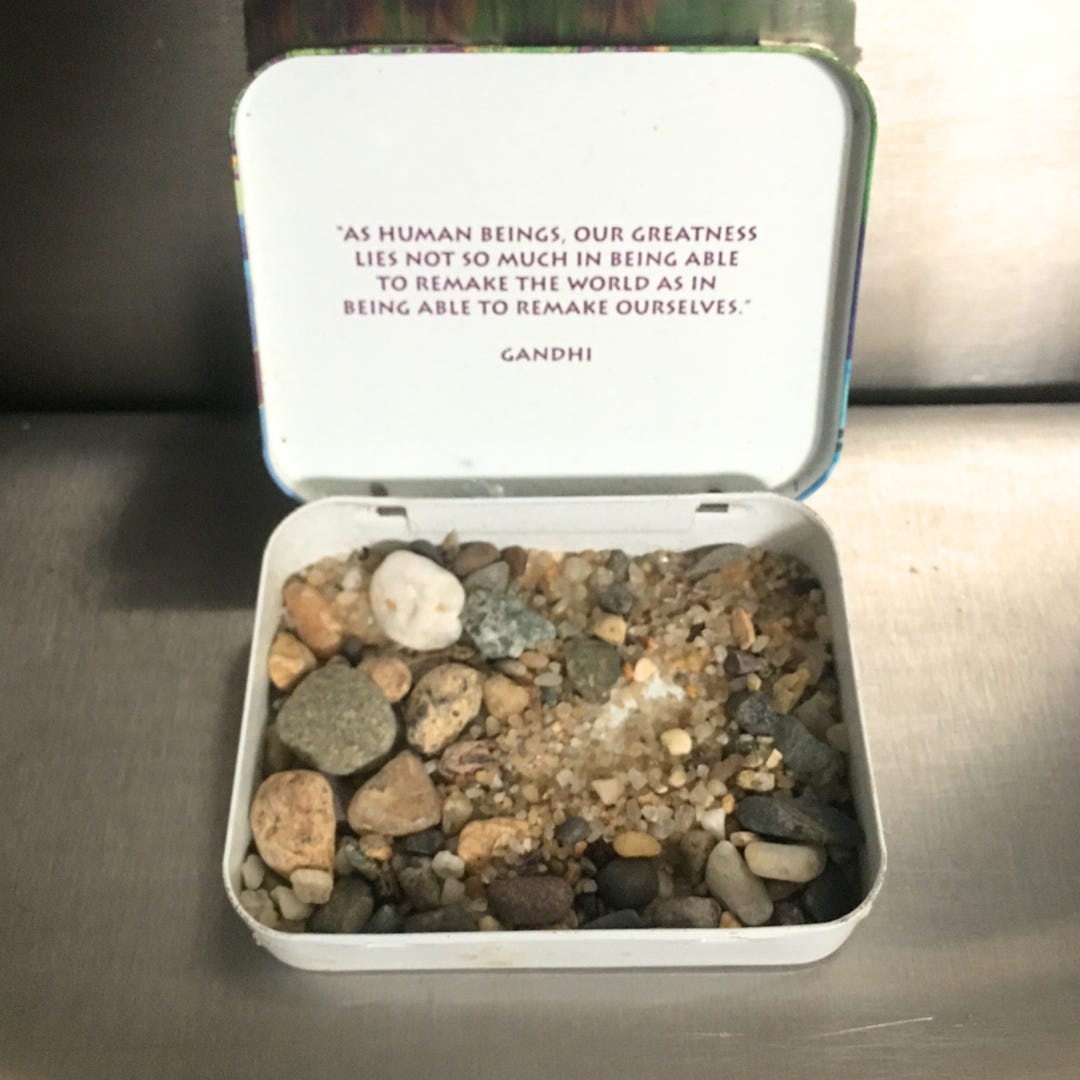THE BOX OF WAVES
“When she finally surrendered and stood to face the beach, the crowd of beachgoers near us broke into raucous applause.”
My 81-year-old mother was laughing helplessly, like a girl on a date with someone whose sense of humor and physical presence left her weak in the middle. She’d just been slammed to the ground by a wave and rubbed into the steep beach face of Herring Cove in Provincetown, Massachusetts. Now she was on her back, plastered with sand and pebbles, gasping with titillated glee.
The day before, the bay had been still as glass. We’d strode in like angels on holiday, dived deep, and swum till we tingled with cold. At one point, floating, ankles crossed, hands clasped behind her head, she’d called to me: “Katie, I feel like I’m married to the sea.”
Married? Did she say married? This was the woman who’d practically been spitting on the idea of marriage for three decades, ever since her and my father’s 26-year go at it had ended in divorce. I knew she loved the sea more than almost anything, but married?
Now the wind was up and the waves were steep, crashing in quick succession, knocking my newly wed mother off her feet. Every time I pulled her up to stand, another wave was on us and back she’d tumble, still laughing. When she finally surrendered and stood to face the beach, the crowd of beachgoers near us broke into raucous applause. She raised her eyebrows, smiled coyly and dipped into a curtsy, complete with extended pinky. As we shuffled through the sand towards home, she said, “Gee, I feel like I married a wife beater.” There was no bitterness in her voice—only irony and a little bit of awe.
When she emerged from the shower later, her hands cupped a clump of pebbles and sand. “Look—a souvenir. It got into every crevice of my suit.” I gave her a mint tin to keep it in, and by the time I saw her again at summer’s end, she’d decorated the lid with a tiny seascape collage. It was perched in a prominent place in her apartment so she could show it off to anyone who stopped by—including herself, I like to think.
It astounds me how determined she was to relish the world no matter how roughly it treated her. At 18, she’d lost her father. A few years later, she lost my father to a psychotic breakdown when he came home from World War II. And then she lost him a thousand more times to a thousand other women. She lost her son, too—my brother Walter—first to schizophrenia when he was 18, then to suicide two years later. She thrust her joy into the gloom every day and lost the battle as much as she won it. And even when the sea she loved had wrestled her to the ground and turned her away for the day, she’d decided it was worth bragging about.
After she died, I claimed the tin of pebbles and sand. I can shake it like a rattle, open it like a gift. And on days when the world feels especially crazy or cruel, I can study this proof that my mother loved it despite everything. —Katie Daley
Katie Daley is writing a memoir about hitchhiking and migrant-working her way across the U.S. in the wake of her brother’s suicide. She’s performed her word music on stages ranging from historic theaters to subway platforms, and her chapbook Any Closer to Home is forthcoming from Finishing Line Press.




I am new to this Keepthings site, and am just going through some of the stories that I feel drawn to. I love yours. I too love floating on my back in Herring Cove and I collect rocks from the beach. I love how you write about your mom and the sweet little tin of stones and sand that she had kept. It brings back memories of my mother and how she suffered and died alone. I hope one day to have the skills to write about her as you have done here. Sending you good wishes from NYC. ❤️🙏🥲